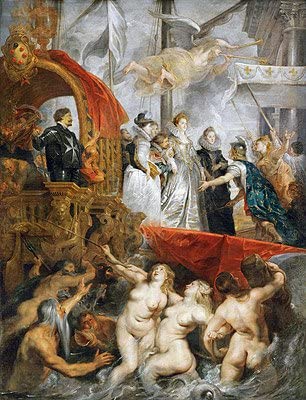SOUVENIRS - Résistant, St-Sozy, Lot, France
Twenty years old: Resistance men!
We joined the fight, we swarmed to war.
A catchy song inspired us then:
‘The Flower in the Rifle-Bore’.
Make history! we had that aim.
Give Nazi crimes their recompense!
At twenty years, no thought of fame:
of Life, a total ignorance.
We lived in woodland hideaways
and all our talk was Liberty.
We laughed and sang through happy days,
concealed our illegality.
Some of our friends, untimely quit of war,
Posterity, and history, waylaid.
Young, they had hardly lived: they longed for more,
loved life so much, they gladly would have stayed.
Our storm is past, our stage is pacified,
our lives are long, our memories retold:
our theme, the fallen, all their youth, their pride.
They cannot age, who died, not being old.
Listen, old friend! The time will surely come
for us to meet again the friends who fell,
resisting. Are there lessons from their tomb?
What will they ask us? What have we to tell?
Chaumeil will ask: “Well, are you now at peace?
Have all the Nazi crimes been well repaid?
Has the world learnt? Have the atrocities
led to a greater Union being made?
Have subject peoples burst their chains? What joy
for Jews? Do black folk work for nothing still?”
“Suppose the Chinese like us!” Harry-boy
will smile. “You’ll have a planet of goodwill!”
Slightly embarrassed, we’ll avert our gaze.
“The prison and the stake are not good form,”
we’ll say. “Nazis are human nowadays,
Germans are friends: tomorrow we’ll re-arm,
and our two countries, joined in brotherhood,
will gird for war against... just who, dear Lord?
Can’t say! ...No matter!” Then we’ll raise our head
and see our friends, retreating heavenward,
speak in low tones and turn their eyes away,
leaving our world, by Hope too briefly called.
Judging us cowards, traitors, they will say:
“See how they all have changed, for they are old.
They all forgot our heavy sacrifice,
scythed down in youth by Nazi hordes from hell:
they failed to build a solid edifice
in honour of our villagers who fell.
Their souls have buckled like an ageing limb:
these men of sorrows have no motherland.
We haven’t changed: we’ve kept alive the flame:
all’s lost to them... and each was once our friend!”
We won’t reply: these tones familiar
shall penetrate our heart’s most secret place.
With them to help us, yes, we won the war;
living without them, we have lost the peace.
Old friend, we surely shall be moved to weep,
seeing those youngsters flitting to their grave.
Shamed and surrendered, weaponless we’ll sleep;
above their heads alone, the flag shall wave.
Memories
A vingt ans lorsqu’ en ribambelle
Nous avons rejoint le maquis,
Nous pensions à la ritournelle
Qui chante une fleur au fusil.
Nous voulions écrire l’histoire
Et punir les crimes nazis
A vingt ans, sans chercher la gloire
On ignore tout de la vie.
Nous parlions tous de libertés
Et nous vivions au fond des bois
Tous, nous aimions rire et chanter
Et sans bruit nous bravions les lois
Certains de nos amis finirent la leur guerre
Et, rentrant dans l’histoire et la postérité,
Jeunes, ayant peu vécus, tous ceux là qui naguère
Aimaient si fort la vie et voulaient y rester
Pour nous, après l’orage, tout est rentré dans l’ordre
Et nous avions veillis, narrant nos souvenirs
Parlant des disparus, leur jeunesse et leur morgue
Puisqu’ on est toujours jeune, en partant sans vieillir.
Vois tu, mon vieil ami, quand viendra le moment
D’aller rejoindre ceux, tombés en résistant,
As-tu pensé un peu à toutes leurs questions?
Et si leur mort, pour nous, a laissé la leçon?
Alors dira Chaumeil, elle est fini la guerre?
Avez-vous bien vengé tous les crimes nazis?
Le monde a-t-il compris et les tortes de naguère
Ont-ils scellé l’Union, diront Tino, Henri?
Les peuples opprimés ont-ils brisés leurs chaînes?
Les juifs sont-ils heureux? Les noirs ont-ils fini
De travailler gratis? Si les chinois nous aiment
Vous avez dû créer la planète aux amis!
Un peu embarrassés, nous baisserons la tête
Nous dirons: c’est changé, les nazi sont humains
La prison, le poteau, ce serait bien trop bête
L’allemand est l’ami: on fait un char demain
Ainsi nos deux pays, unis comme deux frères
Seront prêts à lutter … mais contre qui bon dieu?
On ne sait pas, ça fait rien … et en levant la tête
Nous verrons nos amis se tourner vers les cieux
Ils parleront tout bas, regagnant la retraite
D’où l’espoir, un moment, les avait ramenés
Et sans nous regarder, nous jugeant lâche et traitre
Diront: ce sont des vieux, vois comme ils ont changé.
Ils ont tous oublié notre lourd sacrifice
Nos jeunesses fauchées par les hordes nazis
Ils n’ont pas su construire un solide édifice
En mémoire aux martyrs tombés à St-Sozy
Leur corps qui a vieilli a modifié leur âme
Ils ont tous les douleurs et n’ont plus de patrie.
Nous autres on est pareil; on a gardé la flamme
Mais eux ont tout perdu … et c’était nos amis!
Nous ne répondrons pas car ces voix familières
Atteindront dans nos coeurs l’endroit le plus secret
Bien sûr, nous avec eux, avons gagné la guerre
Mais nous, vivants sans eux, avons perdu la paix.
Alors mon vieil ami, émus, au bord des larmes
Nous verrons ces jeunots regagner leur tombeau.
Honteux, vexés, meurtris comme un soldat sans arme
Nous dormirons tout nu, leur laissant le drapeau.
 Nerval imagines a Rubens picture like this actual one of Maria de' Medici arriving at Marseille in 1600 (in Rubens's lifetime) to be Queen of France.[/caption]
Nerval imagines a Rubens picture like this actual one of Maria de' Medici arriving at Marseille in 1600 (in Rubens's lifetime) to be Queen of France.[/caption]